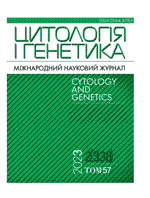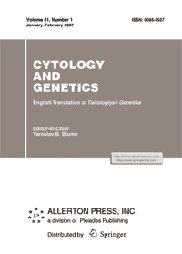Cytology and Genetics ,
vol. ,
no. , ,
doi: https://www.doi.org/
The low dose (0.05–0.1 mM) influence of alkylating agents on germ cell survival and male fertility, the level of embryonic and postembryonic lethality as well as the sex-linked recessive lethal (SLRL) frequency induced by high alkylating agent doses was studied in Drosophila melanogaster. The pretreatment of adult males with low doses of methyl and ethyl methanesulfonate (MMS and EMS) did not change or even enhanced EMS cytotoxicity and mutagenicity in both mature sperm and premeiotic cells. On the contrary, the low EMS dose pretreatment of larvae protected them against higher mutagen doses increasing male fertility, decreasing embryonic and postembryonic lethality in F1, and leading to three-fold reduction in the SLRL frequency in F2. The adaptive response was dependent on the Drosophila developmental stage exposed to challenge mutagen doses, since the protection was maximal in larvae and practically absent when the high dose was administered to adult males. The adaptive response observed does not seem to be associated with DNA repair, but it is rather due to other protective mechanisms.
Keywords:

